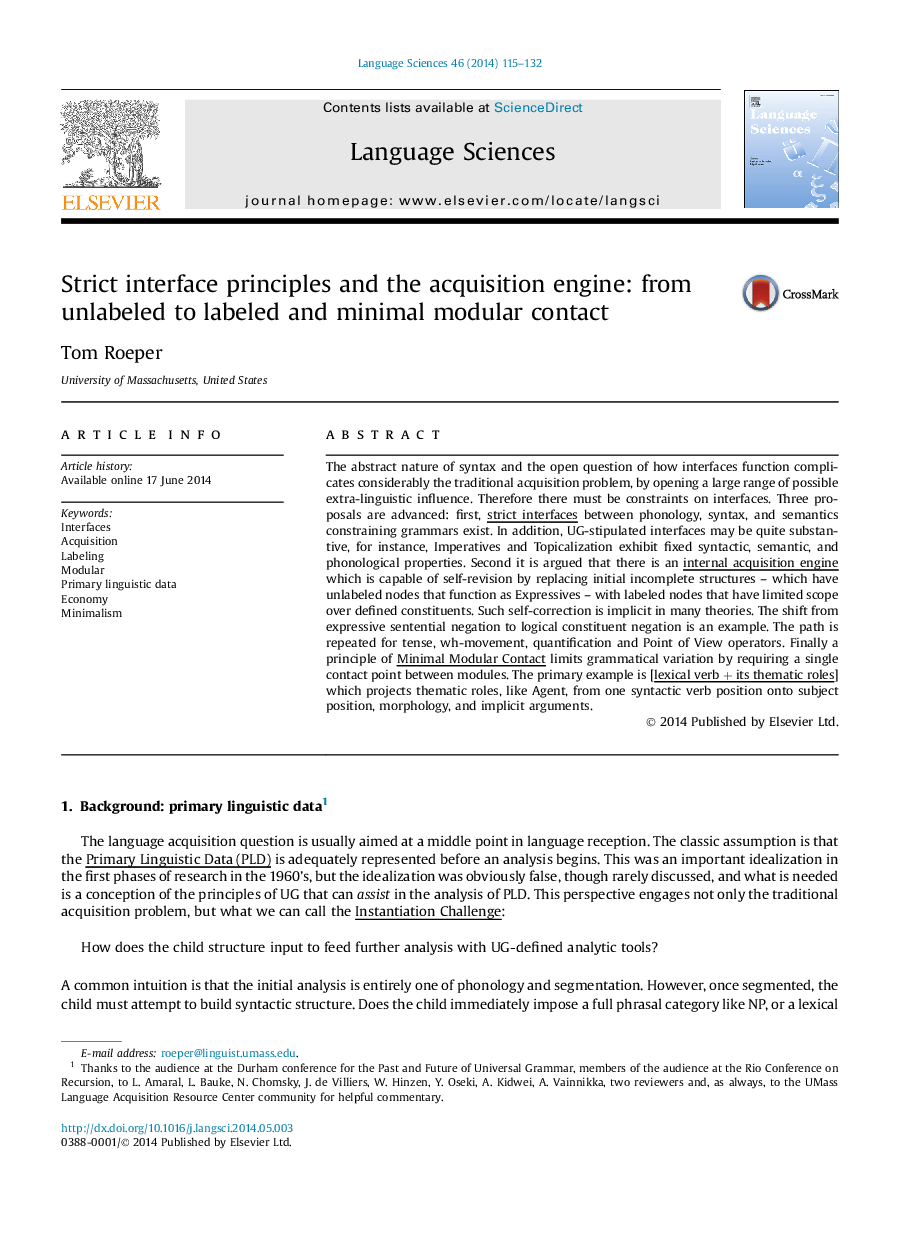| Article ID | Journal | Published Year | Pages | File Type |
|---|---|---|---|---|
| 10520107 | Language Sciences | 2014 | 18 Pages |
Abstract
The abstract nature of syntax and the open question of how interfaces function complicates considerably the traditional acquisition problem, by opening a large range of possible extra-linguistic influence. Therefore there must be constraints on interfaces. Three proposals are advanced: first, strict interfaces between phonology, syntax, and semantics constraining grammars exist. In addition, UG-stipulated interfaces may be quite substantive, for instance, Imperatives and Topicalization exhibit fixed syntactic, semantic, and phonological properties. Second it is argued that there is an internal acquisition engine which is capable of self-revision by replacing initial incomplete structures - which have unlabeled nodes that function as Expressives - with labeled nodes that have limited scope over defined constituents. Such self-correction is implicit in many theories. The shift from expressive sentential negation to logical constituent negation is an example. The path is repeated for tense, wh-movement, quantification and Point of View operators. Finally a principle of Minimal Modular Contact limits grammatical variation by requiring a single contact point between modules. The primary example is [lexical verb + its thematic roles] which projects thematic roles, like Agent, from one syntactic verb position onto subject position, morphology, and implicit arguments.
Related Topics
Social Sciences and Humanities
Arts and Humanities
Language and Linguistics
Authors
Tom Roeper,
